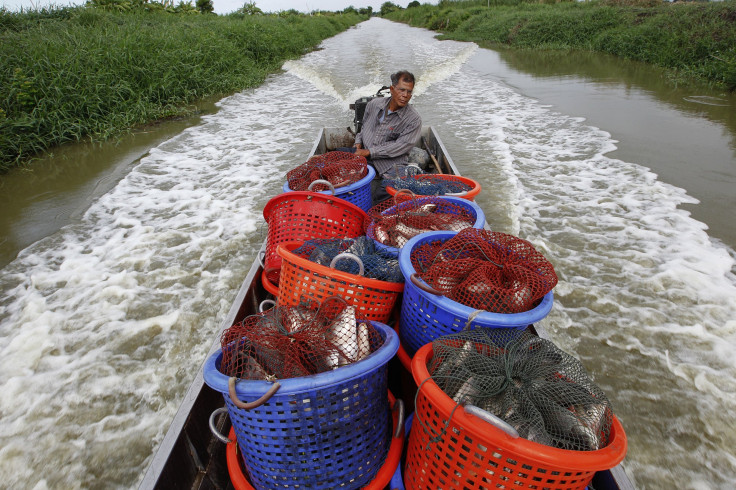Thai Fishermen Strike Amid Increased Regulation Following European Union Warning

Following a call for increased regulation from the European Union, Thai fishermen have gone on strike to protest new rules that took effect on Wednesday. The new rules aim to clamp down on illegal fishing, reported Reuters.
The European Union in April gave Thailand -- the world's third-largest seafood exporter -- six months to reel in illegal fishing or face a trade ban on its imports. Thailand has struggled with widespread unregulated fishing that has resulted in overfishing and reported human rights abuses. Thailand exports an estimated 575 million to 730 million euros' ($641 million-$813 million) worth of product to the European Union every year. Total fish exports from the country were worth about $3 billion last year, according to the Thai Frozen Food Association.
In response to new EU regulations, fishermen have reportedly gone on strike in 22 of 76 provinces in the country. The new rules, requiring all boats to have licenses, registered fishing equipment and navigation systems, have left some unable to take their boats out to sea. Others have feared being caught not meeting new regulations, since those who don't comply could reportedly face up to three years in jail.
"Many illegal fishing boats are owned by simple villagers, who need to be trained and need funds to buy the required equipment," said Kamolsak Lertpaiboon, secretary-general of the Fishing Association of Thailand, according to Reuters. Prime Minister Prayuth Chan-ocha, meanwhile, called for fishermen who met requirements to refrain from striking.
"We can't avoid this crack down because if we don't pass international assessment what will happen?" Prayuth told reporters, via Reuters. "Those vessels that can go out to fish must go."
Thailand's fishing industry employs around 300,000 people. About 90 percent of those workers are migrants from outside the country, who reportedly work in bad conditions for sometimes months at a time, Quartz reported at the time of the European Union warning. Many Thai fishing vessels are unregistered and outside of government control, making them difficult to track. Quartz also reported that the unregulated industry had overfished nearly every valuable native species.
© Copyright IBTimes 2024. All rights reserved.






















